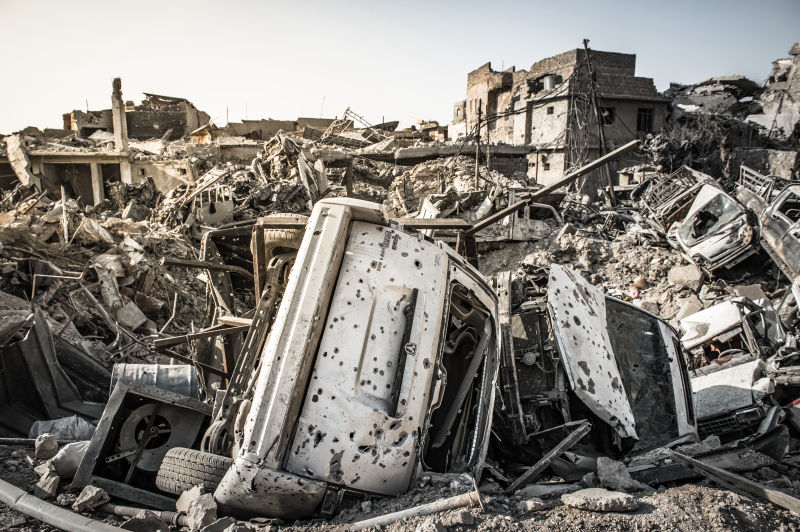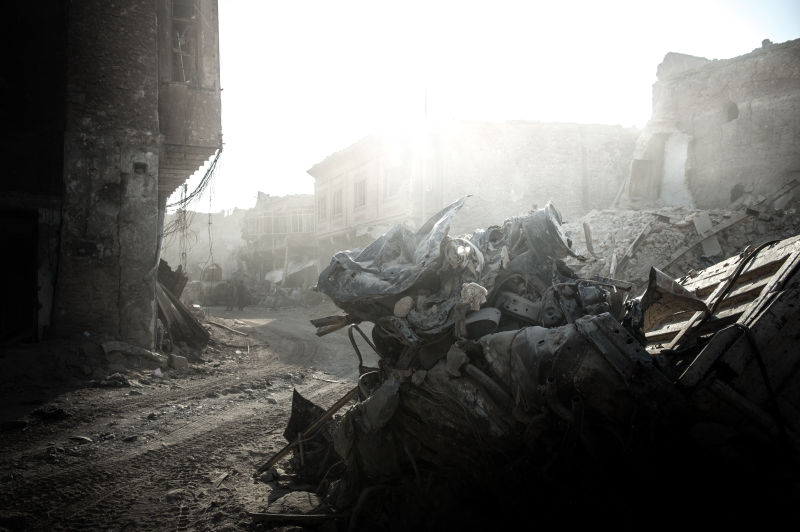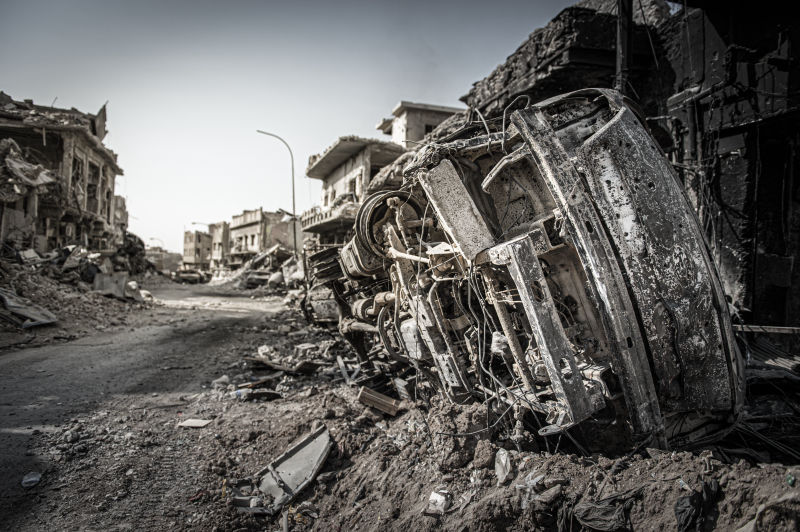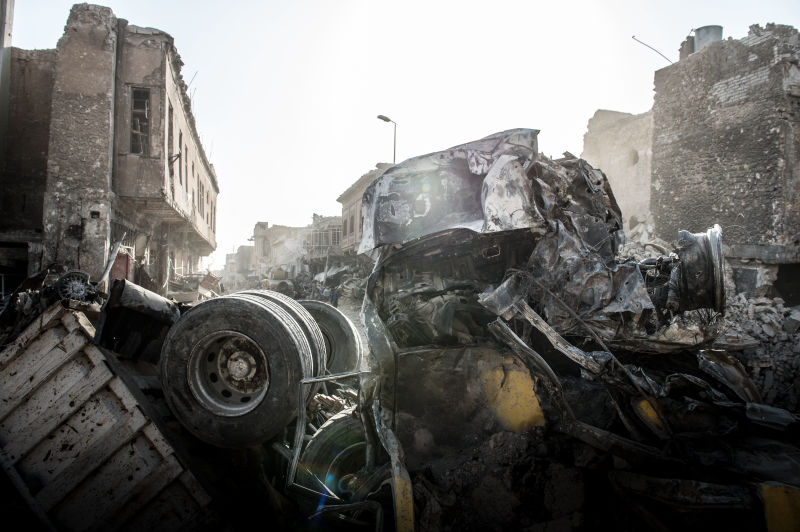And then, horror unfolds.
Noise.
Silence.
A murmur that slowly grows louder.
Muffled screams and voices.
Like in the bathtub when you have your head under water.
Except for the screams.
For a moment, I'm disoriented.
No more than a few seconds.
But it feels longer.
The explosion of the air-to-ground missile was enormous, the bang deafening. Where a house stood a moment ago is now a gaping, smoking crater. I am with a group of Iraqi soldiers. They used lasers to target the house where IS fighters were holed up. An Iraqi gunship took care of the rest. You will hardly find any remains of the IS fighters. And if they are, they will simply be left lying around. Who would be interested in a foot or a thumb of a jihadist?
"Target neutralized," that's what it's called in military parlance.
One of the soldiers grumbles, dust and plaster having fallen on his sandwich. The rest of the platoons sit exhausted on the floor with blank stares. Only one of them takes a selfie, his index and middle fingers forming a V, the sign for victory.
But there is not much sign of victory, even though Prime Minister Haider al-Abadi had proclaimed the liberation of the city from the Islamic State a few hours earlier. IS had been defeated and driven out of Mosul.
But here I am now, hearing salvos from assault rifles, individual shots from snipers, shells and rockets hitting the ground. Suicide bombers are still blowing themselves up.
So this is what liberation sounds like, I think to myself, while back home in Germany, interest in the conflict in Iraq is already waning again.




Follow